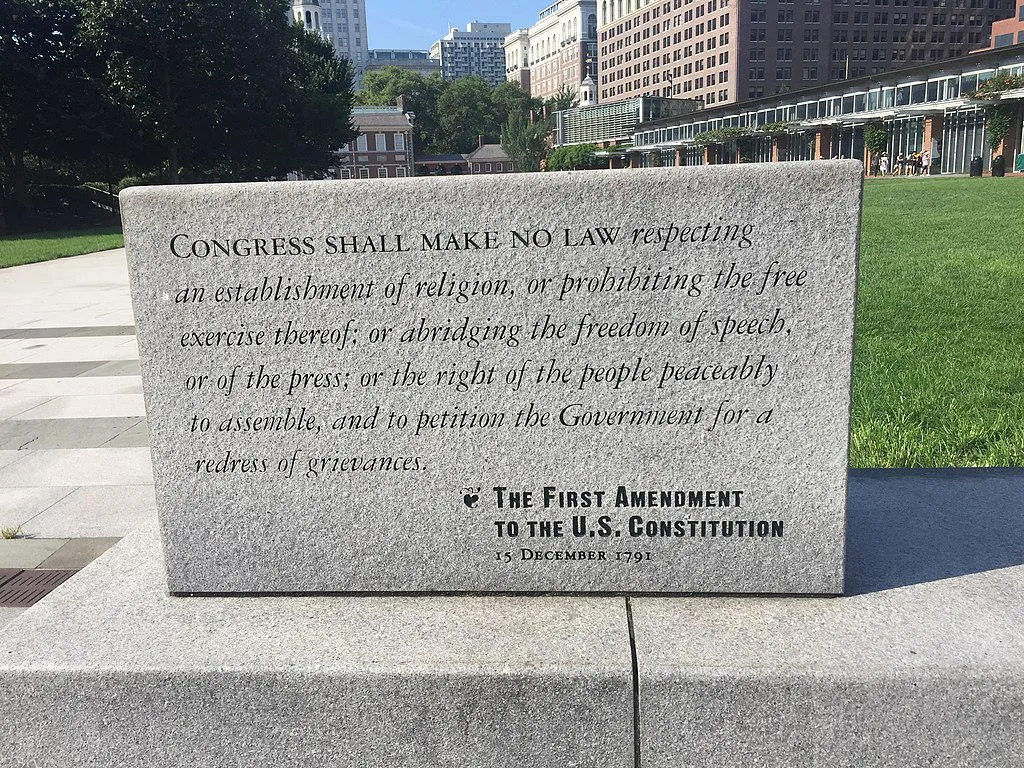Americans’ understanding of the First Amendment is not getting better with time.
In 2006, the McCormick Tribune Freedom Museum commissioned a poll, which revealed that many Americans knew more about the Simpsons than the First Amendment, reports the National Constitution Center.
“The phone survey found that only 28% of Americans could name more than one of the freedoms guaranteed by the Constitution’s First Amendment, but more than half of Americans could name at least two members of the fictional Simpsons family. In addition, 22% of Americans could name all five Simpsons family members, while just 11% of folks knew that freedom of the press was guaranteed under the First Amendment.”
Fast forward 17 years: Americans have a breadth of information at their fingertips that 2006 did not offer. Do we know more about the First Amendment? “Survey says: No,” reports Sean Stevens of the Foundation for Individual Rights and Expression (FIRE).
“In a recent AmeriSpeak panel conducted by the National Opinion Research Center at the University of Chicago, FIRE asked 1,140 Americans if they could name any of the specific rights protected by the First Amendment. ... Almost a third of Americans could not name a single enumerated right protected by the First Amendment, and another 40% could name only one – usually freedom of speech. Among Americans who named one or more enumerated rights, roughly two-thirds named freedom of speech, about a quarter (26%) named freedom of religion, 20% named the right to assemble, 15% named freedom of the press, and 8% named the right to petition. Only 3% of Americans could name all five. On average, Americans could name 1.33 First Amendment rights.”
Freedom of speech
Freedom of religion
Freedom of assembly
Freedom to petition
Freedom of the press
FIRE’s survey also revealed that older Americans and citizens with a bachelor's degree had more First Amendment knowledge. But what can be done to help the rest of the country?
“Americans cannot protect, preserve, and exercise their rights if they don’t know what those rights are,” Stevens writes. “But, there exists a ray of hope, as the Freedom Forum has also consistently found that high school students who have taken classes that include content about the First Amendment are more supportive of free speech rights. This suggests that a culture of free speech can be fostered by increasing knowledge of the First Amendment.”
To help support First Amendment learning, FIRE offers a variety of free courses on the First Amendment, including “The History of Free Speech,” “Can I Publish This?” and “The Case for Radically Free Speech.”
Steven reports, “We provide college orientation materials and maintain a syllabus database of courses that focus on freedom of expression. We also provide teaching resources to help K-12 teachers enrich and supplement their existing instruction on the First Amendment. We even send out complementary copies of our comic book, “Finding Your Voice,” which shows teens the empowering effects of knowing and using their First Amendment rights.”
--30--
Written by Heather Close. Cross-posted from the Rural Blog.







